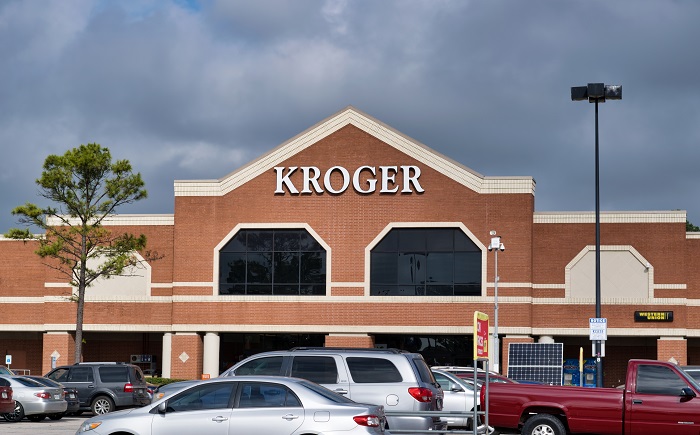COVID-19 vaccination is vital to end the pandemic, but it’s not proving to be an easy task. Although vaccines are here and are becoming more widely available, skepticism and hesitation still surround the shots, and scores of Americans say they do not plan to get vaccinated. That’s where employers come in.
Employers are widely seen as essential in encouraging employees to get inoculated and boost vaccination numbers across the country.
“The distribution of COVID vaccines will be critical to getting back to business as usual. Employers have a strong stake in ensuring the success of these public health efforts and can be a real ally in making it happen effectively,” says Michael Thompson, president and CEO of the National Alliance of Healthcare Purchaser Coalitions, a nonprofit, purchaser-led organization that represents some 12,000 employers. “Employer efforts to educate on the merits of vaccines in general, and the COVID vaccination process specifically, can make a real difference to mitigate vaccine hesitancy.”
While the Employment Opportunity Commission in December announced employers can require that employees get vaccinated as a condition of going to work–with some accommodation requests–most organizations have said they will not require workers to get vaccinated, but instead, encourage them to do so.
In recent months, a number of employers have announced plans, incentives, education efforts and more to encourage their workers to get the shots. Here’s a look at 12 employers’ vaccine plans.
Related: For more on employers’ vaccine strategies, don’t miss HRE’s virtual health and benefits conference, May 11-13. To register, click here.
Aldi
This grocer says it will cover costs associated with vaccine administration and is providing employees with two hours of pay for each dose they receive, up to four hours total, as well as providing scheduling flexibility for salaried employees. It is not a requirement, but the employer is encouraging the vaccinations “by removing obstacles for its workers to access the COVID-19 vaccine, if they so choose,” the company says. Read more here.
Aon
The professional services firm is offering its 50,000 employees two days of paid time off for each injection, Aon tells HRE. “We recognize there is a time commitment associated with receiving each injection and the potential recovery afterward, and providing access to 16 hours of additional paid time off per injection means our colleagues do not need to worry about using their existing accrued paid time off if they choose to receive the COVID-19 vaccine,” says Lisa Stevens, Aon’s chief people officer. Stevens says the PTO also is a way to support employees during the new phase of the pandemic.
“Our highest priority remains protecting the health, safety and wellbeing of our colleagues and their families. We want to support those who do wish to receive the vaccine in order to do our part to support the societal and economic recovery process,” she says. Stevens adds that, while Aon is encouraging employees to get the vaccine, it is “by no means” requiring it. Read more here.
Chobani
Food company Chobani is offering workers paid time off to get vaccinated. The yogurt maker, which has roughly 2,200 U.S. workers, says it will cover up to six hours of time for Chobani employees to get vaccinated–three hours for each of the two doses.
“It’s simple, fair and the right thing to do,” Peter McGuinness, president and COO of Chobani, said in a LinkedIn statement. “Our plant employees have been on the frontlines of putting food on America’s kitchen tables 24/7 during this pandemic. They’re the heart of our company and we’ll do whatever we can to protect them.” Read more here.
Darden Restaurants
The parent company of chains including Olive Garden and Yard House will provide hourly restaurant workers up to four hours of paid time off–two hours of pay per dose. Read more here.
Dollar General
Dollar General became one of the first major employers to offer workers an incentive for getting the COVID-19 vaccine: an extra four hours of pay. The retailer’s offer applies only to hourly frontline workers right now, but it plans to extend it to its distribution and transportation teams, Dollar General says. Getting vaccinated is not required but the company hopes to motivate workers to do it with the offer.
“We do not want our employees to have to choose between receiving a vaccine or coming to work, so we are working to remove barriers (e.g., travel time, mileage, child care needs, etc.) by providing frontline hourly team members with a one-time payment equivalent of four hours of regular pay after receiving a completed COVID-19 vaccination and salaried team members with additional store labor hours to accommodate their time away from the store,” Dollar General said in an announcement in January. Read more here.
Kroger
Kroger will pay a $100 bonus to any employees who get vaccinated. The one-time payment “will be offered to all associates who receive the full manufacturer-recommended doses” of the vaccine, the company announced in February. “As we move into a new phase of the pandemic, we’re increasing our investment to not only recognize our associates’ contributions but also encourage them to receive the COVID-19 vaccine as it becomes available to them to optimize their wellbeing as well as the community’s,” says Tim Massa, Kroger’s chief people officer.
Workers who cannot receive the vaccine due to medical or religious reasons will have the option of completing an educational health and safety course to receive the payment, Kroger says. Read more here.
McDonald’s
Employees at McDonald’s corporate and corporate-owned stores in the United States will be given four hours of paid time to receive the vaccine, the fast food giant says.
“Vaccination is essential in the fight against the pandemic, and we are actively encouraging McDonald’s employees to take this important step,” says Tiffanie Boyd, U.S. chief people officer with McDonald’s USA. “Ensuring widespread availability and access to the vaccine will require extraordinary partnerships between businesses, governments and community and health organizations, and we’re engaging with government officials and our partners to understand where McDonald’s can further support this work.” The incentive isn’t available for those employed by McDonald’s franchisees. Read more here.
Read all of HRE’s COVID-19 vaccine coverage here.
Northwell Health
The healthcare provider’s HR team members partnered with employee health to develop and roll out an online platform through which employees can register for vaccine appointments. Northwell Health also created a vaccine influencer campaign designed to reach and educate team members who are hesitant about being inoculated. As part of its messaging, the campaign focuses on access: how to make appointments, how to work your hospital schedule around appointments, where to go, what to do to get ready, etc. Education about the vaccine itself is another strategy. Among other programs, the HR team rolled out Q&A sessions staffed by two clinicians and recently released a “myth-busting” document about the vaccine.

“We’re using a host of tactics intended to educate and influence people,” says Maxine Carrington, who was named CHRO of Northwell Health last month. “Our goal is to help people make informed decisions. We’re not trying to pressure anyone but rather make sure they’re making a decision that’s based on fact, not fiction.” Read more here.
Petco
The retailer is providing a one-time $75 payment to each employee who gets a COVID-19 vaccination. The retailer also will contribute $25 to the Petco Partner Assistance Fund, which helps employees experiencing financial hardship. “We strongly encourage all of our over 26,000 partners to get vaccinated as soon as they are eligible,” says Ron Coughlin, Petco chairman and chief executive. Read more here.
Rising Ground
The New York nonprofit has a robust COVID-19 vaccine plan in an effort to get all of its 1,600 employees vaccinated. It is sending weekly emails with vaccine information from medical experts and doctors, is posting vaccine information on social media and has organized and hosted related workshops. A recent event brought in physicians from the Columbia University Department of Emergency Medicine to discuss the vaccines–and their benefits–with employees; HR plans to schedule more such discussions. The employer also is leaning on employees who have received the vaccine to be “credible messengers” about their experience.

In addition, the nonprofit is also focused on making sure staff has access to the vaccine. Rising Ground partnered with two pharmacies to vaccinate employees at its two largest locations: in Brooklyn and in Yonkers, New York. The employer also is giving workers four hours off per dose to get vaccinated. More incentives or rewards for employees, like gift cards or holding a biweekly raffle, could be on the way.
“We have a plan that keeps evolving,” says Roanica Paisley, senior vice president of human resources at Rising Ground. “If we just rest on one place or one idea, we leave people behind.” Read more here.
Target
The retail giant is providing up to four hours of pay–two hours for each dose–to hourly employees when they get their vaccine. It also will provide all workers with free Lyft rides, up to $15 each way, to get to and from their appointments if they need it.
“Taking care of our team has been at the heart of every decision we’ve made since the coronavirus started, and this point in the pandemic is no different,” says Melissa Kremer, Target’s chief human resources officer. “As more vaccines become available, especially for frontline and essential workers, we’ll help our team members across the country get the information and access they need.”
Although the employer is encouraging vaccination, Target said it does not plan to require it for its employees. Read more here.
Trader Joe’s
The grocer is giving employees two hours of pay for each dose they receive–for a total of four hours for the complete two doses–and will allow flexible scheduling so workers have time to get vaccinated. Read more here.




